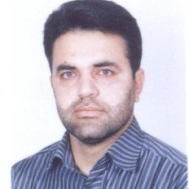International Journal of Intelligent Systems and Applications (IJISA)
IJISA Vol. 4, No. 11, 8 Oct. 2012
Cover page and Table of Contents: PDF (size: 640KB)
Cogging Torque Reduction in Surface Permanent Magnet Motors Using Taguchi Experiment Design and Finite Element Method
Full Text (PDF, 640KB), PP.33-39
Views: 0 Downloads: 0
Author(s)
Index Terms
Permanent Synchronous Motor, Permanent Magnet Pole, Finite Element Method, Taguchi Experiment Design Method
Abstract
In this paper, use the Taguchi experiment design method for achieving optimal design to reduce cogging torque and torque ripple of a surface permanent magnet motor. Cogging torque is one cause of vibration and noise, so reducing cogging torque is an important issue Results from simulations, indicate reduction of cogging torque and torque ripple while increasing the average of motor’s output torque. How do simulations and achieve the optimum design, by using the Taguchi method and simulations by using the finite element method has been done.
Cite This Paper
S. Asghar Gholamian, S. Rashidaee, "Cogging Torque Reduction in Surface Permanent Magnet Motors Using Taguchi Experiment Design and Finite Element Method", International Journal of Intelligent Systems and Applications(IJISA), vol.4, no.11, pp.33-39, 2012. DOI:10.5815/ijisa.2012.11.04
Reference
[1]K. Ogasawara, T. Murata, J. Tamura, and T. Tsuchiya, “High performance control of permanent magnet synchronous motor based on magnetic energy model by sliding mode control,” in 2005 Eur. Conf. Power Electronics and Applications, Sept. 2005, p. 10.
[2]B. Stumberger, G. Stumberger,M. Jesenik, V. Gorican, A. Hamler, and M. Trleps, “Power capability and flux-weakening performance of interior permanent magnet synchronous motor with multiple flux barriers,” in Proc. 12th Biennial IEEE Conf. Electromagnetic Field Computation, 2006, p. 419.
[3]Y. K. Chin and J. Soulard, “A permanent magnet synchronous motor for traction applications of electric vehicles,” in IEEE Int. Conf. Electric Machines and Drives, June 2003, vol. 2, pp. 103.
[4]B. N. Chaudhari and B. G. Fernandes, “Performance of line start permanent magnetsynchronous motor with single-phase supply system,” Proc. Inst. Electr. Eng., Electr. Power Appl., vol. 151, no. 1, pp. 83–90, Jan. 2004.
[5] P.Zheng, J. Zhao, J. Han, J. Wang, Z. Yao, and R. Liu, “Optimization of the Magnetic Pole Shape of a Permanent-Magnet Synchronous Motor”, in IEEE Trans. Magn.,vol. 43, no. 6, June 2007.
[6] C. Hwang, P. Li, F. C. Chuang, C. T. Liu, and K. H. Huang, “Optimization for Reduction of Torque Ripple in an Axial Flux Permanent Magnet Machine”, in IEEE Trans. Magn.,vol. 45, No. 3, march 2009.
[7]S. I. Kim, J. Y. Lee, Y. K. Kim, J. P. Hong, Y. Hur and Y. H. Jung, “Optimization for Reduction of Torque Ripple in Interior Permanent Magnet Motor by Using the Taguchi Method”, in IEEE Trans. Magn.,vol. 41, no. 5, may 2005.
[8]Y. Y. ang, X. Wang, R. Zhang, T. Ding, and R. Tang, “The optimization of pole arc coefficient to reduce cogging torque in surface-mounted permanent magnet motors”, in IEEE Trans. Magn., vol. 42, no. 4, April 2006.
[9]G. H. Kang, Y. D. Son, G. T. Kim, and J. Hur, “A novel cogging torque reduction method for interior-type permanent-magnet motor”, in IEEE Trans on Industry applications., vol. 45, No. 1, Jan/Feb 2009.
[10]K. Y. Hwang, S. B. Rhee, B. Y. Yang, B. Kwon, “Rotor pole design in spoke-type brushless dc motor by response surface method”, in IEEE Trans. Magn., vol. 43, no. 4, April 2007.
[11]R. Islam, I. Husain, A. Fardoun, and K. McLaughlin, “Permanent - magnet synchronous motor magnet designs with skewing for torque ripple and cogging torque reduction”, in IEEE Trans on Industry applications., vol. 45, no. 1, Jan/Feb 2009.
[12]S. W. Youn, J. J. Lee, H. S. Yoon, and C. S. Koh, “A new cogging-free permanent-magnet linear motor”, in IEEE Trans. Magn., vol. 44, no. 7, July 2008.
[13]S. W. Youn, J. J. Lee, H. S. Yoon, and C. S. Koh, “Robust design of a spindle motor: a case study”, in reliability engineering and system safety 75 (2002) 313-319.
[14]N. Bianchi and S. Bolognani, “Design optimisation of electric motors by genetic algorithms,” IEE Proc.—Electr. Power Appl., vol. 145, no. 5, pp. 475–483, Sep. 1998.
[15]M. Lukaniszyn, M. JagieLa, and R. Wrobel, “Optimization of permanent magnet shape for minimum cogging torque using a genetic algorithm,” IEEE Trans. Magn., vol. 40, no. 2, pp.1228–1231, Mar. 2004.
[16]J. T. Li, Z. J. Liu, M. A. Jabbar, and X. K. Gao, “Design optimization for cogging torque minimization using response surface methodology,” IEEE Trans. Magn., vol. 40, no. 2, pp. 1176–1179, Mar. 2004.
[17]T. Ohnishi and N. Takahashi, “Optimal design of efficient IPM motor using finite element method,” IEEE Trans. Magn., vol. 36, no. 5, pp. 3537–3539, Sep. 2000.
